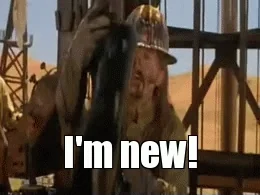In Dannels' book, 8 Essential Questions Teachers Ask, she addressed establishing credibility on the first day of the course by discussing your experience with the course and the content. On the first day of class in my "About Me" powerpoint, I showed a picture of social media and health communication, telling my class how the material I am teaching them is related to my research interests. Describing how I personally related to the field of communication studies to my students on the first day provided them with insight on who I am and why I am teaching the course. Although I had a good introduction of how my research interests relate to the communication studies field, my experience with teaching was brand new! I had never had to think about whether an audience perceived me as credible or not! Experience is not the sole indicator of credibility!

On the first day of class I remember thinking to myself, will these students think I am the professor or the instructor? Dannels addressed the issue of not having any teaching experience or having knowledge with the subject material. On my first day of class, I thought once I told my students I was a graduate student working on my master's degree, any aspect of credibility would vanish because they would see me as less credible. Dannels described that even if you are not experienced with teaching so far, you should not let that hinder the effectiveness of your teaching. I mentioned to my students on the first day that I was a graduate student studying social media and health communication and I want to move on to a PhD and continue teaching as a career, demonstrating that I truly cared about what I am doing. Dannels mentions how new teachers should embrace the newness and use the inexperience to justify any struggles or challenges the students may face in the classroom. Trying to establish credibility with students creates a balancing act between assuming the position of teacher and letting the students know that you are also human.

Although sometimes I do forget that I am human and making mistakes is okay, when I first began teaching I thought I had to know all the answers to all the questions or I would lose all of my credibility. Dannels addresses the "what if" question of not knowing all of the answers to all of the questions, where she discusses that teachers should not provide inaccurate information to seem credible. When in the unknown answer territory 💀💀💀, teachers should provide students with an honest answer and should commit to finding the answer for students and to become more knowledgeable with the topic. Being a teaching assistant for COMM 3010, I need to know all sorts of little details and because APA is so particular... I still have to look stuff up in the manual and I will let my students know if I need to look up something in the manual. When my squad in 3010 asks me how a specific document should be cited or whether an item should be italicized, I will always refer to the APA manual first if I am unsure because I can also learn for future reference. In COMM 1010, I had a student ask during the nonverbal section, whether "sweating" was kinesics, environmental factors, or haptics, and I told him I was not quite sure but I could tell him what I thought and why, which led to a class discussion about sweating and nonverbal behaviors because... #shakennotstirred. Be honest with your students because honesty can help establish credibility.

Establishing credibility with students is a nonstop process, from day one of class to the last day of the semester, only to start all over again the next semester. As a teacher, we do not simply gain credibility on day one and hope that the credibility lasts until the end of the semester, we must stay committed to our students. Dannels discusses how teachers should follow through on stated commitments, which I believe to be an overlooked aspect of establishing credibility in the classroom. I tell my students in class that I will respond to their emails quickly and have their grades back in a timely manner, and following through on such commitments leads to a sense of trustworthiness between teacher and student. My students also ask for funny videos to help explain material, they also love memes and funny gifs to keep the information entertaining. I spend extra time making sure I find funny and relevant videos so my students can become more involved within the classroom. If I stick to my word and make teaching entertaining yet informational, my students will stick to their commitment of becoming engaged. One meme at a time... #shakennotstirred
No comments:
Post a Comment